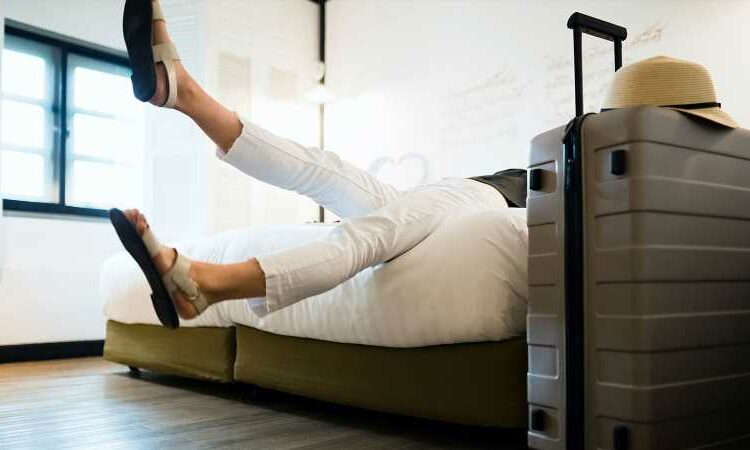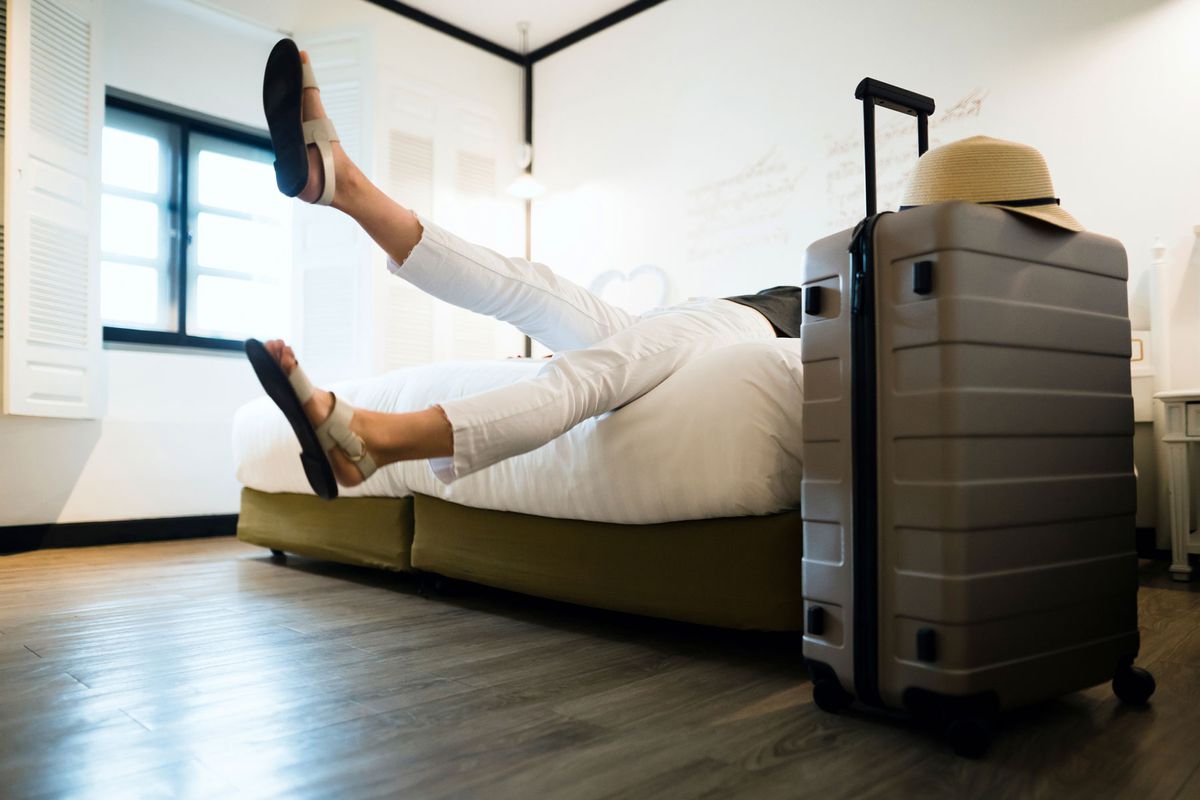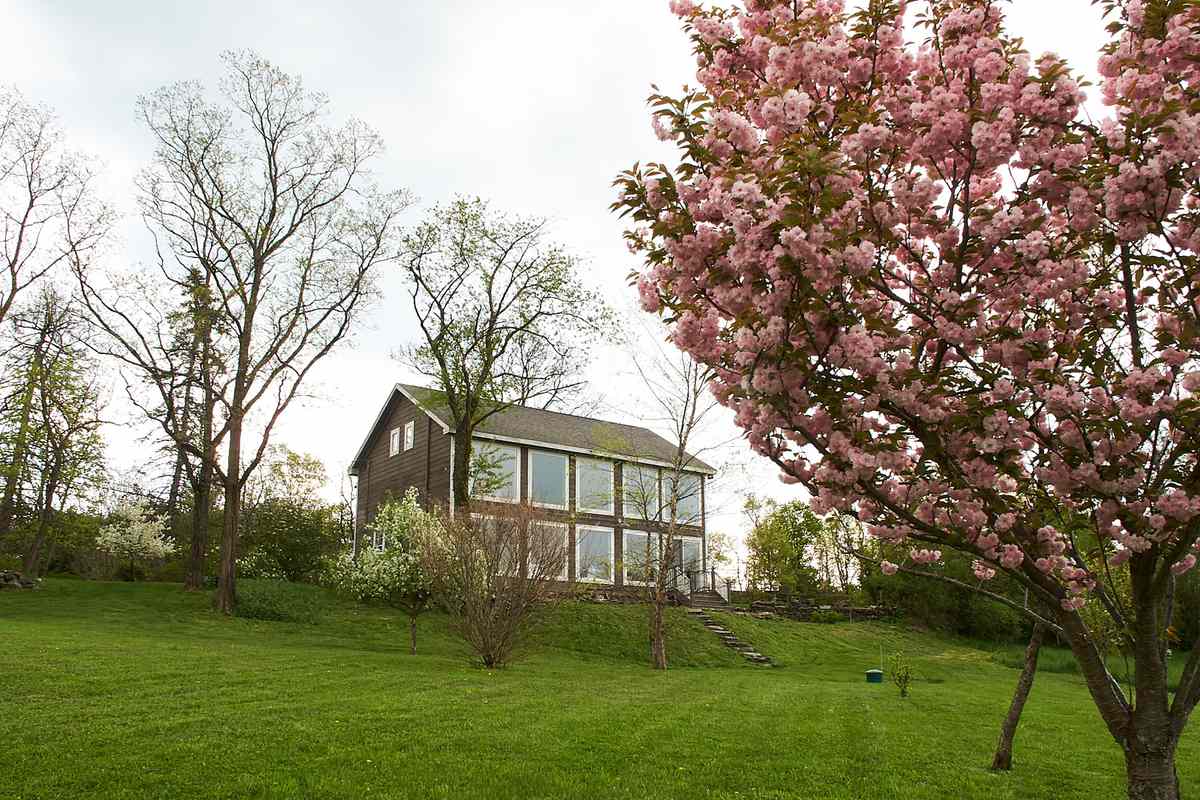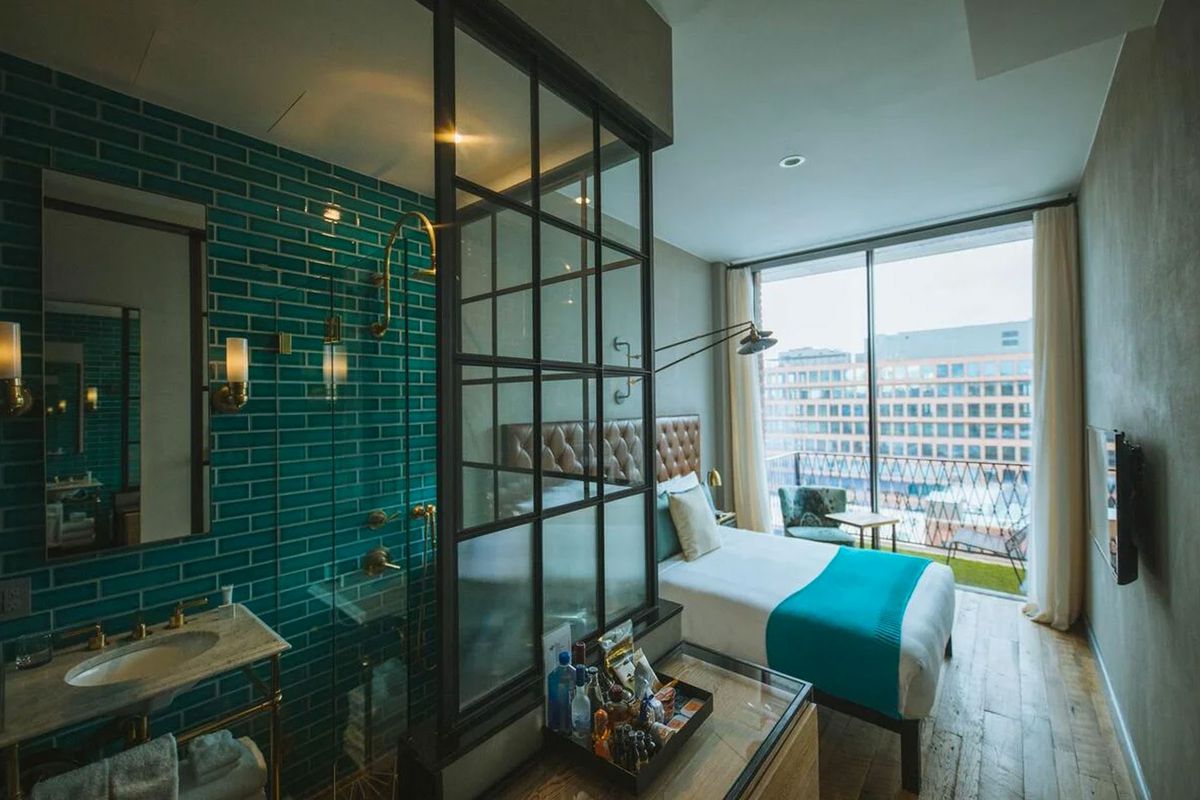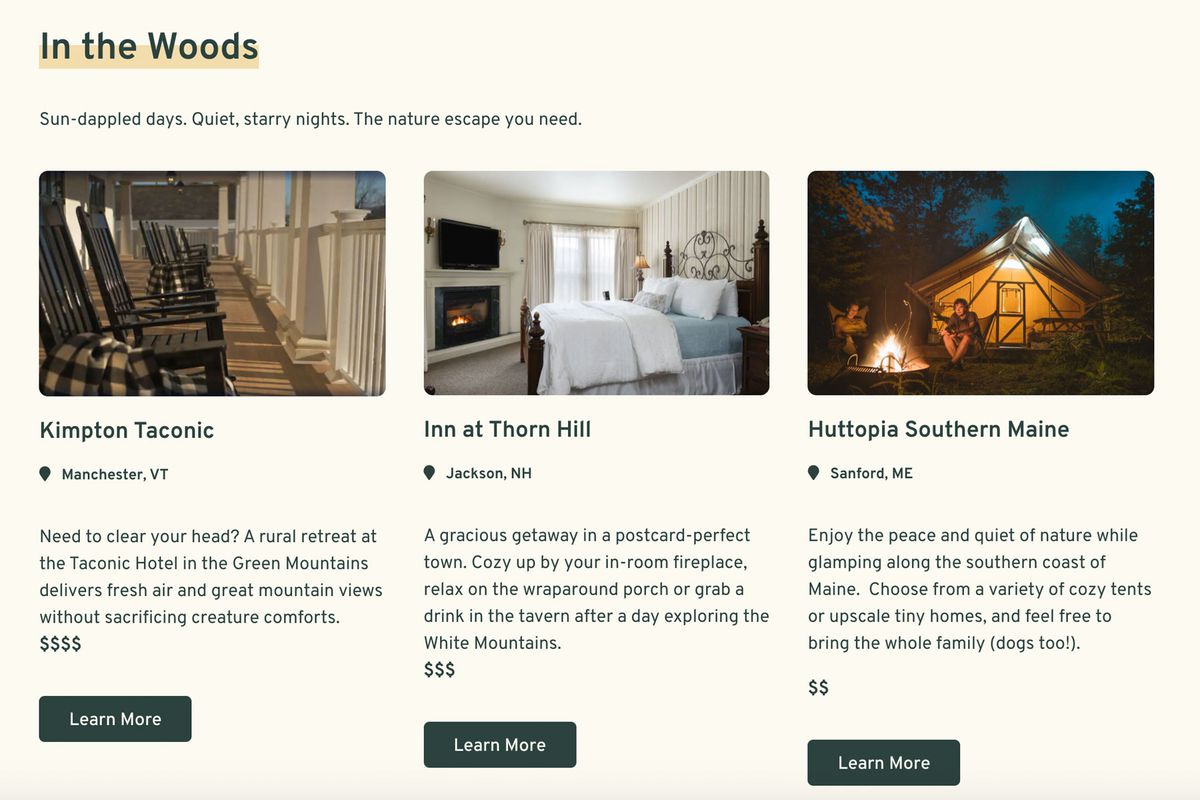At its core, travel has always been an escape from everyday life, whether you're getting lost in a book on a tropical beach or roaming the streets of a foreign city. For people who have been working from home for well over a year now, as well as others who have been isolated from friends and family due to COVID-19, travel has likely felt inaccessible throughout the majority of the pandemic. Not to mention, all this time at home has contributed to a common sense of burnout, a lack of productivity and motivation exacerbated by the pandemic. However, as vaccinations become more widely available and borders reopen, we're beginning to form a clearer picture of what the future of travel might be.
As someone who has taken two trips in the past year, both road trips to Airbnbs that took the necessary safety protocols in destinations within a few hours of where I live, I started wondering if these trips, which one could categorize as local getaways or staycations, are the key to coping with isolation, cabin fever, and pandemic-induced stress while being able to reap the benefits of travel as safely as possible. I took to Twitter to see if I was onto something with my pandemic-era staycation hunch, and my DMs confirmed my suspicions. Even if it's not a complete escape from our daily routines, we still want to get away. In fact, many people are even booking hotel stays in the same cities and towns in which they live as an accessible, often affordable, getaway. For now, a staycation-style getaway might be exactly the type of trip to get wanderlust-filled travelers through the rest of the pandemic, and beyond.
One staycationer I spoke to is Jeena Sharma, a New York City-based journalist who stayed at the Williamsburg Hotel in Brooklyn in order to give herself a break from her everyday routine. She pointed out that factors as simple as not having to cook or do dishes at home made all the difference when spending a night or two away, especially as someone who lives alone and works from home. "Just that change of scenery after months of being locked up in the same apartment was pretty helpful in terms of mental health… coming back to work, I felt less anxious," Sharma said of her trip.
And Sharma isn't alone here. Travel experts have seen an uptick in staycations since the pandemic began. Travel + Leisure spoke with Emily Bernard, co-founder of Tiny Trips, a travel booking start-up specializing in local getaways in the Northeast. While she prefers to use the terms short or local getaway instead of staycation, the conclusion is the same: booking a trip within close proximity of where you live is desirable in the era of pandemic travel, and doing so can have serious benefits.
Bernard and co-founder Ethan Hawkes, who started Tiny Trips in January 2020, tested out their theory that local getaways can be just as fulfilling as, and not to mention more manageable than, longer trips by taking their spouses on a weekend trip to Boston just before the pandemic. "We came home feeling completely refreshed and convinced that the future of travel would include more trips that are shorter in distance and duration, but deliver higher value for time and money invested. The pandemic has reinforced this hypothesis, and also highlighted just how critical it is for all of us to take time off," Bernard said.
And Bernard doesn't believe that travelers will stop booking local getaways once travel restrictions ease and vaccinations become more widely available. "We believe that taking more frequent, shorter getaways can contribute significantly to your well-being and can ultimately be more rewarding than a longer, more 'traditional' vacation. We envision a world where taking time off for a [short getaway] is as acceptable as going to the gym or fitting in a workout — a crucial part of a wellness routine," she said.
But does a staycation actually have mental health benefits? T+L spoke with Dr. Kevin Chapman, a licensed clinical psychologist, about his view on the various ways people are coping with pandemic burnout. As it turns out, a change of scenery and routine, whether that's visiting a local park, picking up a new hobby, or even taking a trip to a nearby hotel or vacation rental, can, in fact, be beneficial to one's mental health. "The trend of being able to create a 'staycation' that resembles a vacation but minus the bells and whistles definitely increases people's subjective perception of feeling normal," he said.
And in a time when normalcy is a distant memory, a trip that offers a break from your routine without those uncomfortable feelings of uncertainty might do just the trick to break you out of your pandemic-induced rut. "Ultimately being able to get a sense of predictability is one of the antidotes to managing anxiety because anxiety, in particular, is linked to unpredictability and uncontrollability of future events," Dr. Chapman said. "So by creating an environment where I can enjoy myself outside of my home context, which has, of course, created a sense of cabin fever, it definitely is going to influence my perception of what's going on around me in a very positive way."
A staycation, whether it's in a hotel in your hometown or a nearby destination, is by no means a cure-all for pandemic-induced stress, anxiety, burnout, and other mental health issues. But before travel makes its full and safe return, these purposeful changes of scenery and meaningful practices of self-care are a start; and they may even temporarily fulfill your wanderlust.
Madeline Diamond is a Brooklyn-based e-commerce editor at Travel + Leisure, and she's constantly fighting the impulse to overpack for her next trip. You can follow her on Twitter @madgdiamond and Instagram @madelinediamond.
Source: Read Full Article
